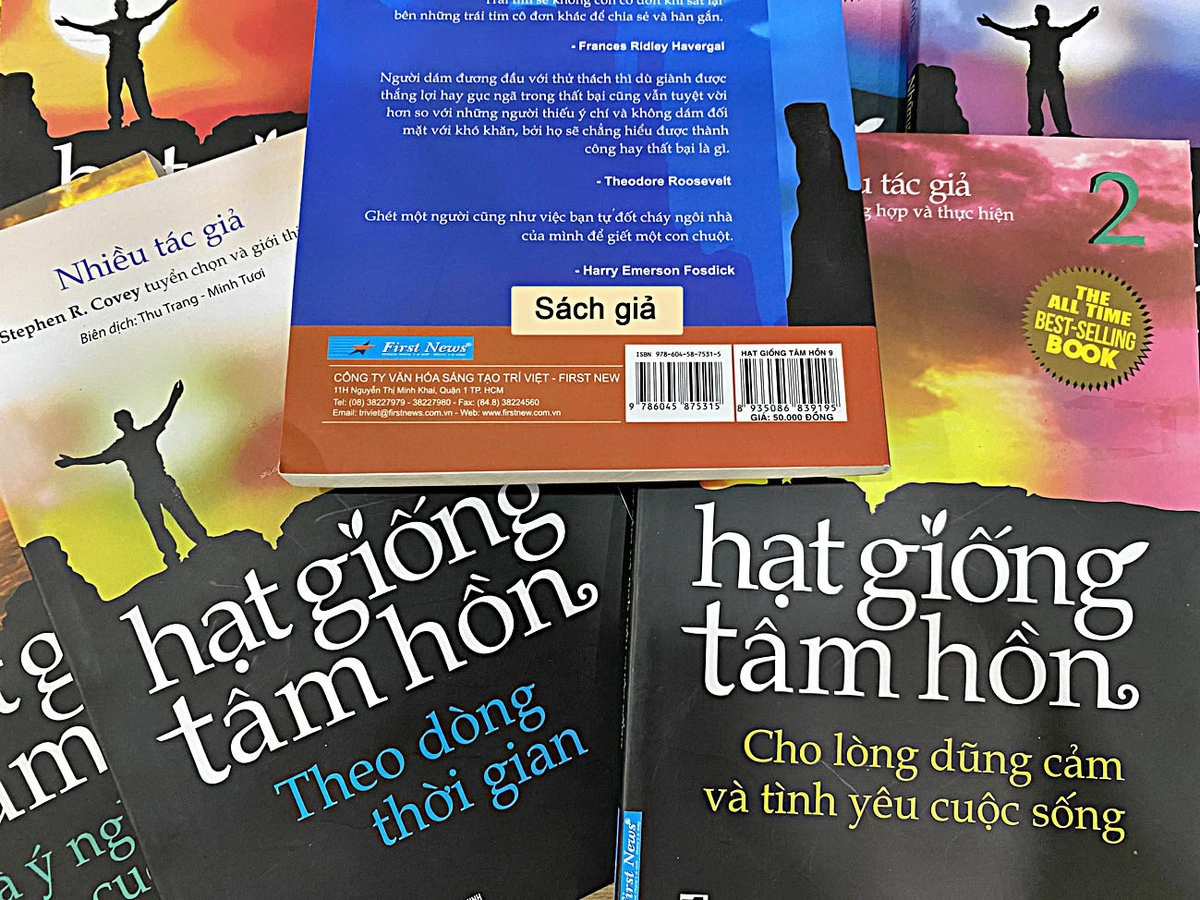Pirated books have long been a persistent headache in Vietnam’s publishing industry. Like a hydra, every time one of its tentacles is severed, countless others seem to sprout in its place.
In today’s age of thriving e-commerce, pirated books are flooding the Internet, openly sold on major online platforms like Shopee and TikTok Shop at shockingly low prices.
Take, for example, Nexus – a bestseller acquired by Omega+ at a high copyright cost, translated, printed, and released concurrently with the U.S. edition. Yet almost immediately, pirated copies began to appear and were sold en masse on Shopee.
Similarly, classics in the piracy market, such as the Vietnamese versions of Chicken Soup for the Soul and How to Win Friends and Influence People published by First News, continue to be widely counterfeited.
The problem has escalated to new heights, with pirated books blatantly sold across e-commerce platforms, seemingly unchecked.
Frustrated by this ugly reality and the lack of effective solutions, Nguyen Van Phuoc, director of First News, announced on January 7 that the company was preparing to file a lawsuit against Shopee Vietnam for facilitating the sale of counterfeit and pirated books.
In an article titled 'Pirated Books on Shopee: First News Isn’t the Only Victim,' published by Tuoi Tre on January 8, one reader condemned counterfeit goods, including books.
However, they also admitted that as a reader simply seeking information and content (and discarding books after reading), they saw no difference between pirated and genuine books.
“Why,” the reader asked, “should I spend double, or even triple, the amount to buy an original book?”
Another reader, Dinh Nghiem, offered a thoughtful response: “Sure, many books are only read once or twice before being shelved.
“But buying genuine books, first and foremost, is about respecting the authors. These are individuals who dedicate years, sometimes decades, or even their entire lives to distilling their knowledge and wisdom into books. Secondly, when you purchase a genuine book, the author receives royalties.
“If you buy pirated books, they get nothing. You’re spending money on a stack of paper, but the knowledge you gain amounts to intellectual theft from the authors.
“I believe that anyone who reads books should first learn to respect and appreciate them. If you can’t do that, then reading books loses its value, doesn’t it?”
Dinh Nghiem’s comment strikes a profound balance between emotion and reason. In the fight against book piracy – especially in this era of e-commerce – it’s unrealistic to expect a quick resolution.
The more important task lies in fostering respect for copyright and authorship, as exemplified by Dinh Nghiem’s sentiment, particularly among younger readers, including Generation Z, or individuals born roughly between the mid-1990s to the early 2010s.
Alongside First News’ bold legal actions against Shopee Vietnam to tackle the rampant sale of counterfeit books, publishers and bookstores must unite to speak out collectively against piracy.
A broader campaign is also needed to instill a sense of respect for intellectual property and authorship among readers.
Every reader, before clicking ‘buy’ on an online platform, should first learn to respect copyrights and authors.
Otherwise, as Dinh Nghiem so aptly put it, “If you can’t learn that, then reading books loses its value, doesn’t it?”
* This is an adapted translation of a Vietnamese article by Le Hong Lam, who worked as a journalist and arts editor for a weekly magazine.
Like us on Facebook or follow us on X to get the latest news about Vietnam!




















































